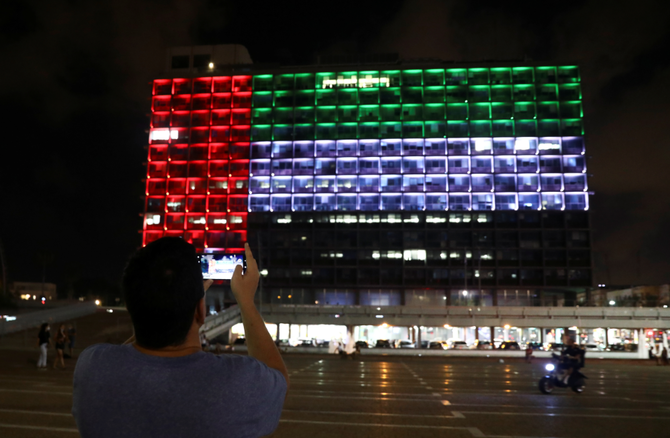
- ARAB NEWS
- 04 Jul 2025

For years, I have heard from Gulf leaders about their desire to establish relations with Israel and it’s no secret that Israel was excited by the prospect as well. As news spread today about the UAE and Israel formally announcing the normalization of relations, many asked me why now and what do I predict will happen next? My answer is simple — this is just the beginning of normalization between Gulf states and Israel and, in fact, I will be so bold as to predict that at least one more Gulf state will establish diplomatic ties with Israel by the end of 2020.
There are a few main factors in the timing. First is the global pandemic. As I shared in my op-ed for Arab News in June, the Gulf states had a powerful incentive to work constructively with the State of Israel when it came to combatting COVID-19. Both the Gulf and Israel are deeply concerned about the disruptive impact of COVID-19 on their societies, and the Gulf is particularly concerned about the economic damage they have incurred due to the crash in the global price of oil. Given the high stakes, these countries are increasingly looking to Israel to help them find solutions. This public health crisis presented the perfect opportunity to transcend political differences and we saw that when UAE Ambassador to the UN Lana Zaki Nusseibeh told an Israeli journalist in May that her government would be willing to work with Israel on a vaccine. Shortly thereafter, the UAE worked directly with Israel to send two Etihad planes with medical supplies.
The other key factor is the increase in regional tensions with Iran. In many ways, this issue has been something both countries have faced for years, but they needed a catalyst to spark action; something that the more timely COVID-19 pandemic triggered. However, the UAE — and many of its neighbors — recognize that Israel could be a tremendous help there as well due to its mighty military.
By making this bold move, the UAE has paved the way for other Gulf states to establish relations with Israel. In the last three years, I’ve heard from three other Gulf states about their genuine desire to establish relations with Israel. They’ve shared, “Rabbi, with our resources and wealth and Israel’s brain trust and technological prowess and innovation, we can become the most powerful region in the world.” It was always a question of who would make this move first, but once the first Gulf state made this announcement, others said they would follow. Now that the UAE has made this announcement, we will see at least one more Gulf state establish diplomatic ties with Israel by the end of 2020.
• Rabbi Marc Schneier is president of the Foundation for Ethnic Understanding and a noted adviser to many Gulf states.